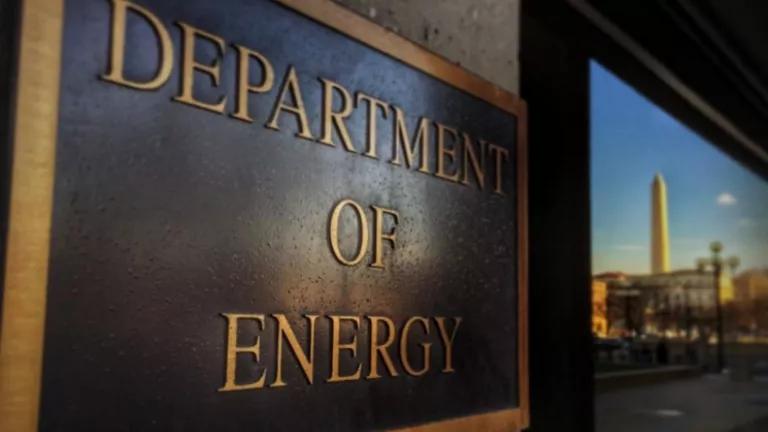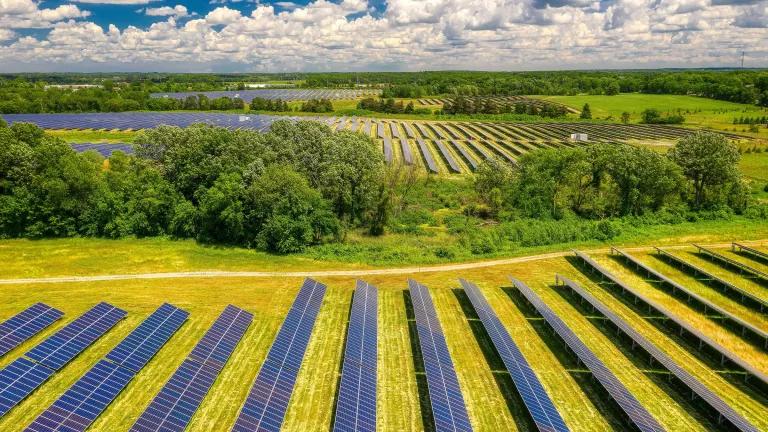Manufacturer Incentives Needed for Ambitious Climate Action
Congress must align the ambition of its climate action with the Biden Administration’s climate goals.

Congress must align the ambition of its climate action with the Biden Administration’s climate goals. This requires innovative mechanisms like updating section 45M of the tax code, to provide manufacturer tax credits to accelerate market adoption of clean heating technology much more effectively than conventional consumer tax credits. The time is ripe for Congress to take advantage of the unique opportunity to incentivize climate-smart changes in how we heat the space and water in our homes, businesses, and industrial buildings, leading to a dramatic reduction in carbon emissions. They must act quickly to seize the moment, by introducing and passing a bill that would provide upstream tax incentives to manufacturers of heat pumps and heat pump water heaters.
Taken together, space and water heating are responsible for 62 percent of all U.S. home energy use, making it absolutely crucial to address these end uses in order to reduce emissions and energy consumption from buildings. Our nation’s buildings are responsible for about 40 percent of all U.S. carbon emissions, so investing in the buildings where we live, work, and play is critically important to meeting President Biden’s commitment to a 100 percent clean energy economy–with zero-energy emissions–no later than 2050. Many members of Congress are strong supporters of dramatically reducing emissions, now it’s time to act to make these ambitious goals a reality by investing in transformative heat pump technology.
Heat pumps and heat pump water heaters are highly efficient, electric equipment used for heating buildings and water. Compared to conventional electric heating and water heating equipment, they reduce energy consumption, utility costs, and carbon emissions by a whopping 50 to 70 percent. When compared with oil and gas equipment, emissions reductions range from 50 to 80 percent lower, depending on the electricity grid mix in a region. Heat pump equipment is reliable and widely available yet makes up only a small portion of today’s market, due to higher upfront costs. Congress has an important role to play in prioritizing government investment in heat pumps to promote climate-friendly carbon emissions, and the best and most cost-effective way to do so is through manufacturer tax credits.
Under a proposal championed by NRDC and the American Council for an Energy Efficient Economy to update section 45M of the tax code, manufacturers would be eligible for a tax credit based on the number of additional units they make, which will spur investment, bring consumer costs down, and transform the market for heat pump equipment. Such “upstream” tax credits have a much bigger market impact than consumer tax credits, as they result in lower prices at the time of sale, without having to wait months for an incentive which must be claimed when filing individual tax returns. Furthermore, a manufacturer tax credit is significantly more equitable, since lower-income households may be unable to afford a higher upfront cost and may have no tax liability, and therefore would not be able to take advantage of such an incentive. There will also be significant benefits on domestic job creation, as the proposal requires that equipment be manufactured domestically after a transition period to build or expand domestic manufacturing capacity.
Manufacturer tax credits are the most effective use of taxpayer dollars to reduce carbon emissions in buildings. A preliminary analysis from ACEEE found that, for a similar dollar investment in manufacturer tax incentives and consumer rebates, manufacturer tax incentives would result in more than double the amount of energy savings and carbon reductions through 2050. Likewise, a proposal being considered to update the 25C consumer tax incentive for heat pumps and other equipment would provide less than 20 percent of the carbon and energy benefits of a manufacturer incentive. While consumer incentives make sense for improvements with an established market, like insulation or appliance upgrades, they are not very effective at promoting ambitious market growth and transformation. A manufacturer incentive will provide the building blocks to truly change the way American homes, businesses, and industrial facilities heat their space and water, leading to a healthier and safer planet for all.



